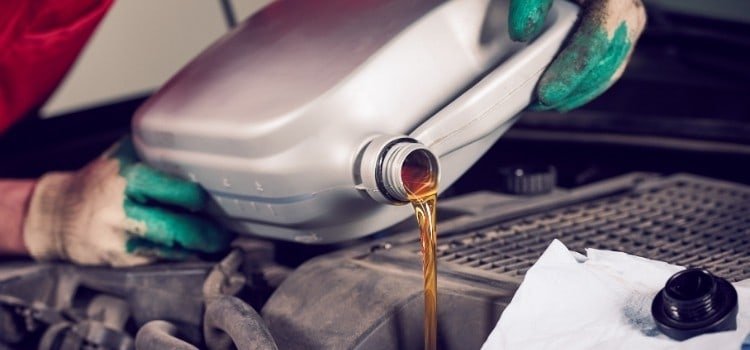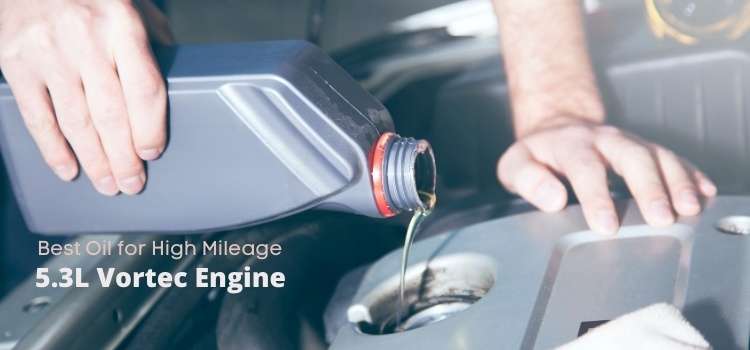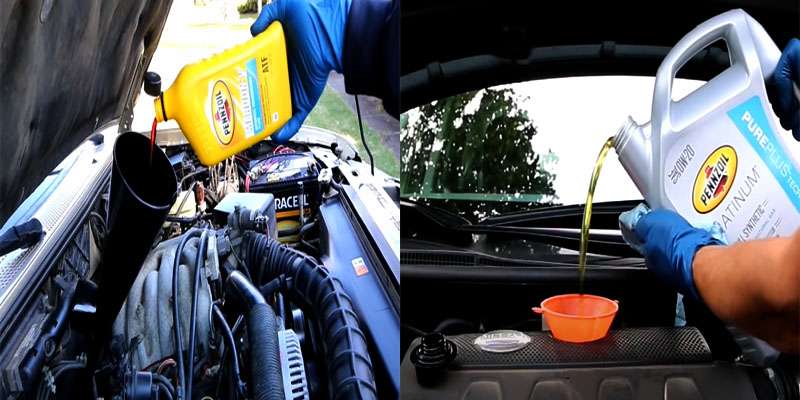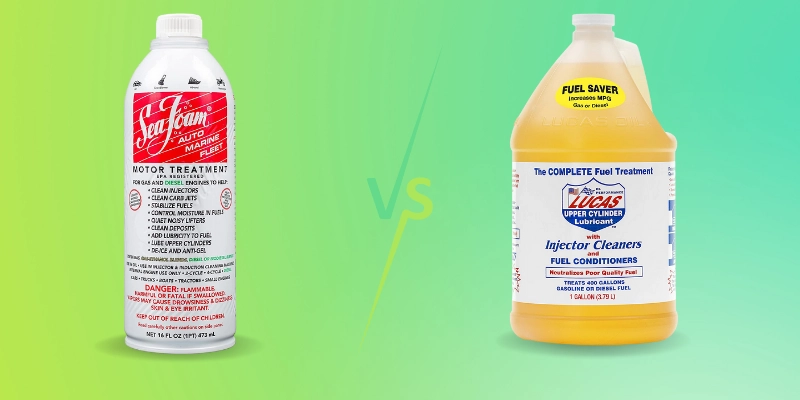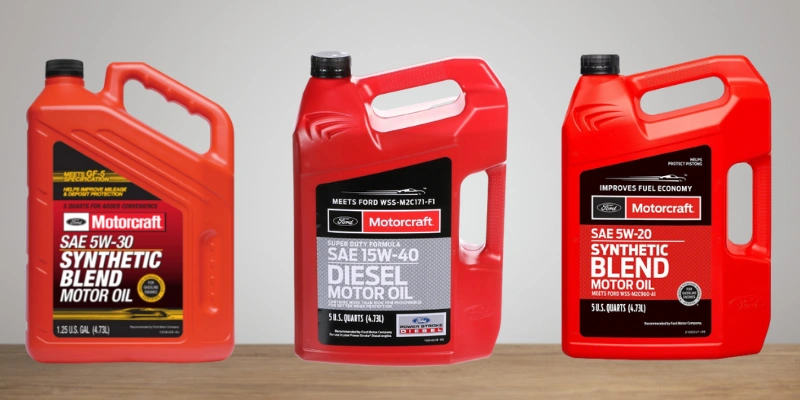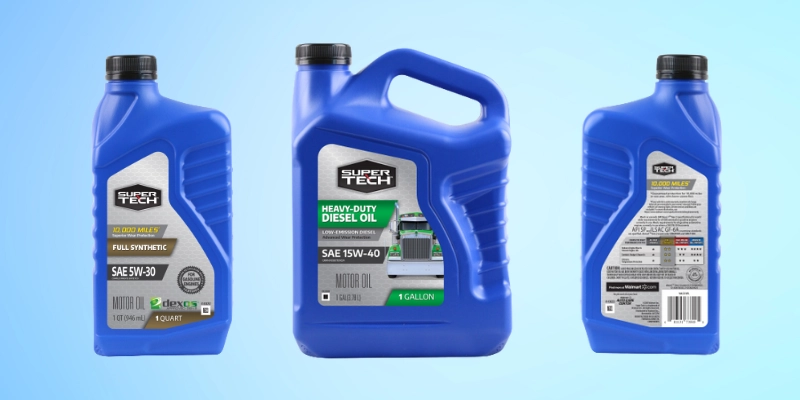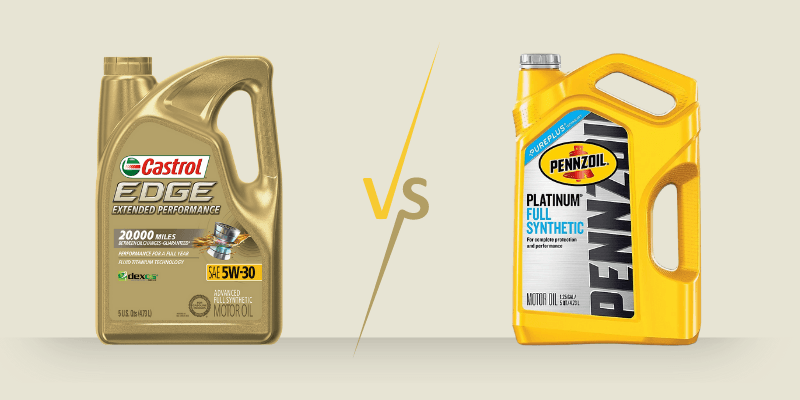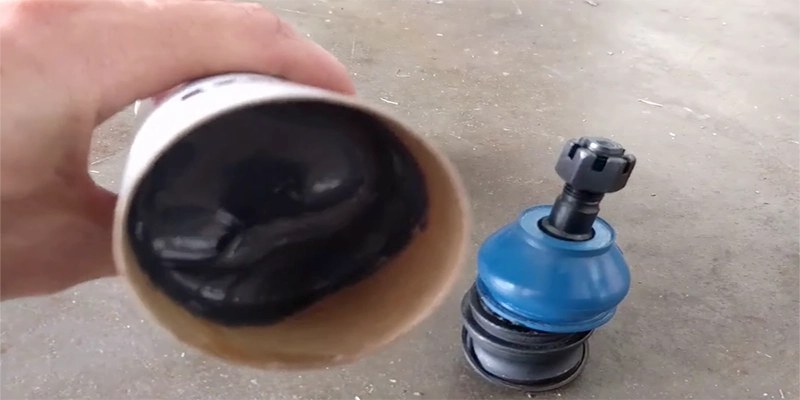Currently, there are a variety of motor oil industries supplying their products for sale. Because of this, choosing the most suitable oil for your car could be a hard decision.
There’s no doubt that finding an excellent motor oil is essential in ensuring your car’s high performance and durability since its primary function is to keep the engine clean, lubricated, and keep it cool.
In this article, we’ll look at the similarities and differences of two motor oils – Mobil 1 and Valvoline.
These two brands are highly competitive and in high demand as they are both excellent high-performance oils and have taken the place of conventional motor oils.
However, every car has its specifications, and a reliable source must recommend the oil used in the vehicle.
Comparing these two motor oils, we’ll look at their prices, manufacturer, viscosity oil types, features, pros, cons, and more.
Comparison Table: Mobil 1 and Valvoline
[amazon table=”7836″]
Mobil 1 Motor Oil
[amazon fields=”B00HG76A9A” value=”thumb” image=”1″ image_size=”large” image_align=”center”]
[amazon fields=”B00HG76A9A” button_text=”Check Price on Amazon” value=”button”]
Mobil 1 Ow-40 and Mobil 1 5w-30 are among the most frequently purchased motor oils, especially in the United States. Currently, it ranks top on the list of synthetic motor oil brands. It is highly suitable for protecting car engines against wear. Most car manufacturers like Lexus, Toyota, Porsche, Mercedes Benz, Honda, Bentley, and Toyota recommend it.
This engine oil was first introduced in 1974. Besides motor oils, Mobil 1 also manufactures chassis oil, gear lubricants, oil filters, and many more.
Most importantly, these motor oils meet all the required standards of car builders in Japan, Europe, and the US. Also, this oil is made of an anti-aging technology that helps extend the oil life and control oil breakdown.
Several tests have been conducted on this product, and results show that cars using Mobil 1 for their engines don’t experience sludge or damage deposits.
Product Features
- Proven yearly protection
- Complete full synthetic oil
- An anti-aging (MaxLife) technology that promotes extended service life.
- LSPI protection
- Anti-heat and anti-wear properties
- Eco-friendly in both hot and cold weather.
- Properties for Thermal resistance and protection from leakage.
- Protection against internal engine heat.
- Excellent performance even in cold temperatures.
Pros of Mobil 1
- It guarantees an engine that can function appropriately with tested and assured anti-aging technology for long distances.
- This motor oil lowers the problems of tear and wear to maintain resistance to friction. Also, protection from the formation of deposits and sludge is ensured.
- The 0w-40 oil offers an assurance of 40% reliable protection.
- Cars that use this oil require a change of oil only after driving a distance of up to 2,000 miles interval.
- It reduces excessive fuel consumption.
- Prolongs oil life and offers long-lasting protection, even in severe conditions.
- Mobil 1 fights against oil breakdowns and maintains standard viscosity to regulate oxidation.
Cons of Mobil 1
- It is a bit expensive considering the amount paid for just a 5-quart oil jug.
- Some car manufacturers like Audi have not approved Mobil 1 for their cars.
Valvoline High Mileage Blend Motor Oil
[amazon fields=”B00GZKC6DS” value=”thumb” image=”1″ image_size=”large” image_align=”center”]
[amazon fields=”B00GZKC6DS” button_text=”Check Price on Amazon” value=”button”]
Valvoline is a world-class motor oil industry located in the United States. This oil is among those with the best reviews on motor oils.
Valvoline is highly recommended for sports engines and family cars. Currently, this oil brand ranks as the 3rd best passenger motor oils brand.
For 20W-50:
- Package Information: Bottle
- Viscosity: 20W-50
- Manufacturer & Brand: Valvoline
- Liquid Volume: 32 Fluid Ounces
- Item Weight 12.25 pounds
- Package Dimensions 13.2 x 9.4 x 5.7 inches
For 10w-30:
- Package Information: Bottle
- Viscosity: 10w-30
- Manufacturer & Brand: Valvoline
- Vehicle Service Type: Truck
- Liquid Volume: 1 Quarts
- Item Weight: 1.94 pounds
- Product Dimensions: 4.23 x 2.65 x 9 inches
Product Features
- Durable anti-wear additives for protection of up to 40%.
- Excellent protection in both high and low temperatures, no matter the level of intense driving.
- Exceptional resistance to friction, especially when igniting cold starts.
- Anti-corrosion additives and detergents to check rust and corrosion.
Pros of Valvoline
- Protects the engine from varnishing.
- In extreme daily driving conditions, it regulates the high temperature.
- Checks and prevents oil leakage.
- Valvoline offers up to a 40% guarantee on protection from engine wear.
- This motor oil has a viscosity rating of 10 in winter or low-temperature situations and 30 in typical situations.
- This motor oil ensures efficient use of fuel.
- It protects the engine during cold climates through a fast supply of oil. The oil pressure helps to keep the engine at the normal temperature.
- Valvoline keeps the engine clean by protecting it from varnish and sludge.
- Also, Valvoline is compatible with all conventional and highly purchased synthetic motor oils.
Cons of Valvoline
- This motor oil can result in burn-offs of leaking car engines, thereby leading to a terrible disaster.
- Valvoline oil requires careful handling when in use.
Conclusion
In sum, in the comparison between Mobil 1 and Valvoline high mileage oil, we’ve seen that both motor oils are best for different passenger cars, vans, and even SUVs.
They act as oil breakdown resistants and ensure effective economization of fuel.
Although these synthetic motor oils are pretty expensive than the regular conventional oils, they give a worthwhile experience when used effectively. Also, no matter what, they never show Thermal breakdowns.
However, note that the motor oils mentioned in the review should be used only for car engines, and not diesel engines.
If it is a direct-injection engine, you will have to strictly follow all the posting rules and guidelines. Also, they must be disposed of adequately to protect the environment from health hazards and any other harm.
 Skip to content
Skip to content

